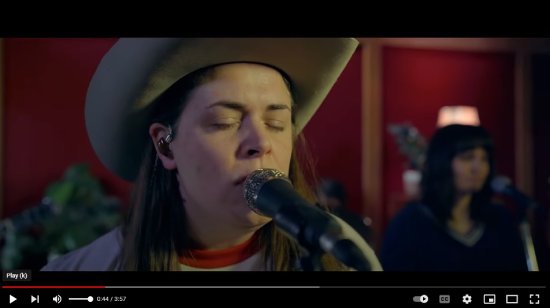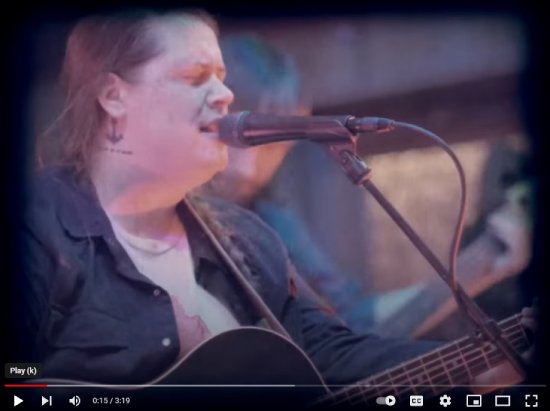Edmonton-based, Calgary-raised Mariel Buckley’s second full-length album, Everywhere I Used to Be, is a huge critical hit, with CBC Music calling her “an essential new voice”; The Edmonton Journal calling the album “a tremendous showcase of Buckley’s talents”; and Americana UK calling it “uncompromising, honest stuff… exceptional and sincere.” Buckley has even received acclaim from another Alberta-raised artist, the iconic kd lang, who notably said, “this kid has a big future.”
But Buckley is no stranger to success. Her first album, Driving in the Dark, won her almost $102,000 for a first-place finish in an Alberta-wide radio station contest sponsored by New Country FM, WILD 953 (CKWD-FM) and Alberta Music, and garnered recognition from No Depression, CBC Music, and PopMatters.
Despite her accomplishments, the lyrics on Everywhere I Used to Be express feelings of failure, and the futility of trying.
Buying cocaine outside the Circle K
Who cares if it kills me anyway?
What’s the point
In staying clean for Christmas?
The singer-songwriter’s words are true to her experiences, and she doesn’t wish the kind of hardships she’s endured on anyone. But with self-reflection and time, Buckley has turned things around. “I know it had a little bit to do with turning 30 a couple of years ago,” she says. “I think I just felt, like, a little bit of a shift within myself, wanting to change some habits and look at some stuff that had been tough for me. So, I think it was pretty organic, you know, in the way we change as we get older.”
Buckley’s evolving sense of self-respect also extends to her romantic relationships. For instance, in the song “Everywhere I Used to Be,” she recognizes that she deserves better, singing, “I have never spoken to anyone / The way that you speak to me.” Then, in the chorus, she says goodbye, and drives away knowing it’s the right thing to do.
She similarly hits the road to escape in “Driving Around,” singing about the freedom found after being cooped up inside for days with her queer date, because it’s too dangerous for them to be out in the open. “There’s just so many people that have to live with a part of themselves that’s secret,” she says. “They haven’t been raised in a place where it’s okay to be themselves, and they don’t feel fully safe to be themselves. I felt like that for so much of my life. I just hope I can reach these folks and let them know there’s no rush, and the world is here for you whenever.”
Whether driving away from trouble, or driving around to keep from getting into trouble, Buckley is most comfortable on the highway. “I love being on the road,” she says. “It’s my favourite place to be. It’s where I get most of my inspiration.”
When she happens to be at home, Buckley enjoys settling into a writing routine that has her waking around 6:00 a.m., going for a lengthy walk, and writing for several hours. “I love writing when I can get into a rhythm. That’s the best feeling ever,” she says, though such experience is elusive. “It happens about twice a year that I get cookin’ on some stuff. I love that feeling of, sort of, experiencing what you’re trying to say, and it starts pouring out of you a little bit.”
Despite Buckley’s personal growth and professional success, she still feels like an outsider. “I do think it’s a hard thing to shake,” she says. “And while I’d like to shake some of the negative pieces of that, like feeling the world’s out to get ya, there’s also a huge piece of it that’s very motivating, and I think very healthy for the kind of art that I want to make.” As she herself sings, in “Shooting at the Moon,” “I wanna be the underdog / Up against the wind.”
No matter how seemingly bright Buckley’s future, it’s important for her to remain faithful to that ethos. “I hope I don’t ever lose that spirit,” she says. “I think it’s important to be true to yourself, and it’s important to me to tell stories of people that are underrepresented. So, I just hope to continue to do that – no matter what people are saying.”

